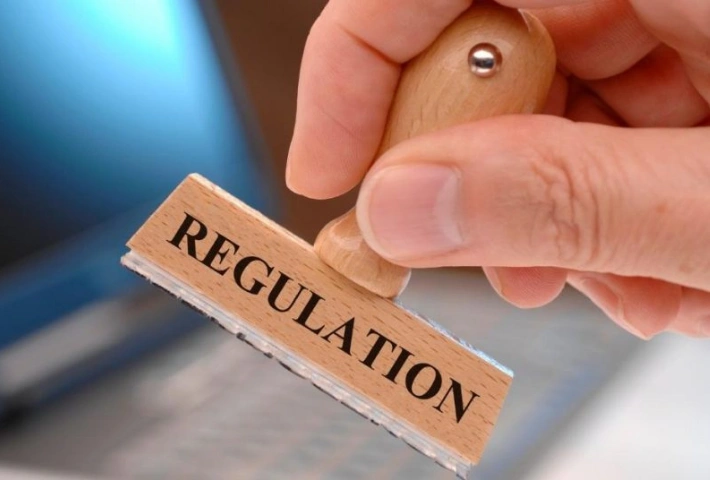Foreign exchange regulation is a form of financial regulation specifically aimed at the Forex market that is decentralized and operates with no central exchange or clearing house. Due to its decentralized and global nature, the foreign exchange market has been more prone to foreign exchange fraud and has been less regulated than other financial markets.
However, some countries do regulate forex brokers through governmental and independent supervisory bodies, for example, the National Futures Association and the Commodity Futures Trading Commission in the US, the Australian Securities & Investments Commission in Australia, and the Financial Conduct Authority in the UK. These bodies act as watchdogs for their respective markets and provide financial licenses to organizations that comply with local regulations.
Regulation in forex (foreign exchange) refers to the legal framework and rules established by governmental and financial authorities to oversee forex trading activities, ensuring transparency, integrity, and protection for traders and investors.
Typically they must be registered and licensed in the country where their operations are based. Licensed brokers may be subject to recurrent audits, reviews and evaluations to check that they meet the industry standards. Foreign exchange brokers may have capital requirements which require them to hold a sufficient amount of funds to be able to execute and complete foreign exchange contracts concluded by their clients and also to return clients’ funds intact in case of bankruptcy.
Each Forex regulator operates within its own jurisdiction and regulation and enforcement varies significantly from country to country. In the European Union a license from one member state covers the whole continent under the Mifid regulation and has resulted in regulatory arbitrage where companies select the EU country that imposes the least controls such as CySEC in Cyprus. Not all foreign exchange brokers are regulated and many will register in jurisdictions that impose low-regulatory environments such as tax havens and corporate havens that form part of offshore banking
key aspects of forex regulation:
Purpose of Regulation
Protection of Traders: Regulations aim to protect retail traders from fraud, malpractice, and unethical practices by brokers. all foreign exchange brokers, investment banks and signal sellers have to operate in compliance with the rules and standards laid down by the Forex regulators. Typically they must be registered and licensed in the country where their operations are based
Market Integrity: To maintain fair trading practices and prevent market manipulation. Stability: To enhance the overall stability of the financial system and reduce the risk of crises.
Regulatory Authorities
Forex is a global market, and regulation varies significantly from one country to another. Some regions may have stricter regulations, while others may have more lenient oversight, which can affect how brokers operate. Different countries have their own regulatory bodies responsible for overseeing forex markets. Some prominent regulators include:
- S.: Commodity Futures Trading Commission (CFTC) and the National Futures Association (NFA).
- UK: Financial Conduct Authority (FCA).
- Australia: Australian Securities and Investments Commission (ASIC).
- Japan: Financial Services Agency (FSA).
- European Union: European Securities and Markets Authority (ESMA) and national regulators of individual EU countries.
Regulatory Requirements for Brokers
Forex brokers must adhere to specific requirements set by regulatory authorities, including:
Client conduct – These insure brokers cannot make unrealistic or misleading claims or promises. It also prevents brokers from advising clients to take risky trade decisions or to enter into positions that are not in their best interest.
Segregation of client funds – These restrictions ensure that the broker can not use any of the clients funds for its operational or other expenses. This regulation requires that all deposits be maintained separately from the broker’s bank accounts. Keeping client funds in segregated accounts and providing compensation schemes in case of broker insolvency
Reporting and disclosure – These rules insure the broker’s clients are well informed of the status of their account and the risks associated with FOREX products. Regularly reporting trading activities and financial health to regulators.
Leverage limits – These limits ensure clients maintain an acceptable risk level. As such, firms may not offer increasingly higher leverage to consumers (e.g. 1:1000).
Minimum capital requirements – Maintaining minimum capital reserves to ensure they can meet client obligations. These restrictions ensure that clients can withdraw their funds at any time including in the event of bankruptcy of the broker.
Audit – Periodic auditing assures the broker financial risk is tolerable and there is no misappropriation of funds. To this end, brokers must submit periodic financial and capital adequacy statements. Licensing: Brokers must obtain licenses to operate legally in a jurisdiction.
Compliance and Enforcement
Regulatory bodies conduct regular audits and inspections to ensure compliance with established rules. Non-compliance can lead to penalties, fines, or the revocation of licenses.
Choosing a Regulated Broker
Traders are encouraged to choose brokers regulated by reputable authorities to ensure safety and reliability. A regulated broker typically offers:
- Enhanced transparency in trading practice
- Stronger investor protection mechanisms.
- Clear dispute resolution processes.

